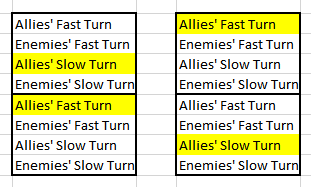Saturday Morning Adventure Dev Diaries #10: Character Progression
Hey guys! Dev diary #9 wasn't very juicy, so here's an extra one for today! In this dev diary, I want to go through the various means of character progression I am going to implement in SMA. Progression I'm planning for progression in SMA to follow a pretty free-form system, predictably inspired by the widespread point-buy progression systems in JRPGs. My current plan is for characters to gain a couple different types of points as they level up which can be spent on a different things to improve their strength: Improving Attributes Gaining new Skills Improving existing Skills Gaining new Abilities Gaining new Feats Improving Attributes Just like so many other RPGs, you'll be able to impove some attributes of your atttributes as you progress through levels. This will just be a simple system, something like "whenver you reach a level that is a multiple of 5, gain an attribute point". Pretty standard stuff all in all. Gaining New Skills &
